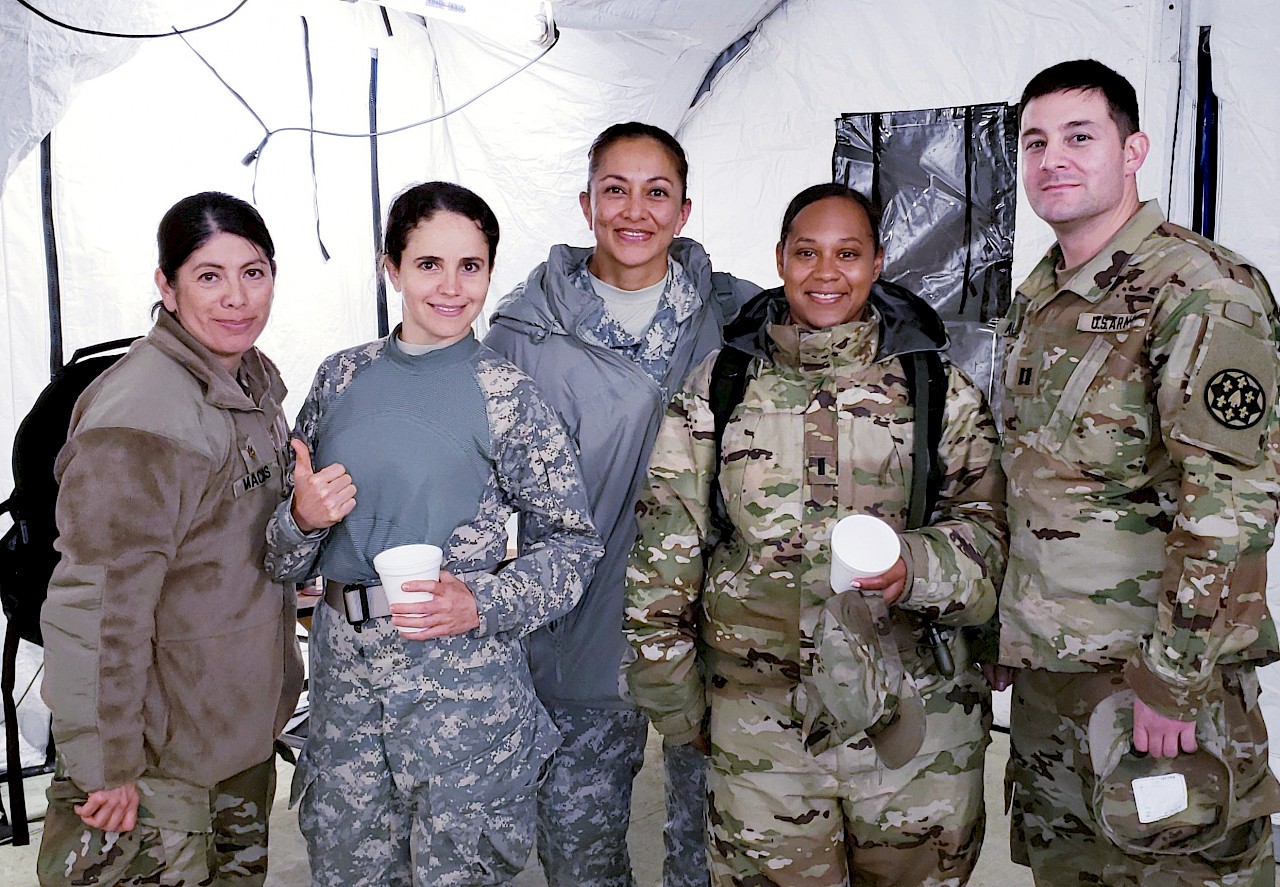January 2019
Usually, I work as a physician assistant at Little Lake Health Center in Willits where I provide medical care to patients young and old; however, I am also a captain for the 297th Area Support Medical Company of the Army National Guard. The Guard was one of the organizations called to respond to the Camp Fire in Butte County. Our unit set up operations at the Chico Airport Base Camp about 20 miles west of Paradise, where I was the Medical officer in charge (OIC) from November 23 through December 6.
Disaster medicine requires the tremendous coordination of diverse agencies and disciplines to both provide care for the victims and to prepare for additional events that may result from the disaster. For the Camp Fire, several organizations mobilized: the California Office of Emergency Services, Federal Emergency Management Agency, California Medical Assistance Team, Army and Air National Guard, Red Cross, and several others.
Responding to disasters like the Camp Fire requires a massive effort; time is precious and creative thinking that optimizes scarce resources is prized. As a physician assistant, my mind goes to the best ways to treat patients, but disaster medicine is much broader and includes public health efforts to contain disease, logistics to get crucial supplies to victims and responders, generators and shelters, security, care for pets, connecting individuals with social services and behavioral health, and replacing essential possessions like glasses and dentures. Coordinating all this requires constant communication—meetings with the Incident Command Team and others multiple times a day. To get a feel for what this is like, imagine sitting around a table in a small, yet impressively high-tech trailer, huddled over a cell phone speaker to synchronize with dozens of others over large distances. These meetings were often long and not strictly clinical in nature, but they were essential if we were to work together toward the same clear vision.
My assignment was to work with a team of guardsmen to set up a medical facility to treat responders, both civilian and military, and to provide some staffing for the eight shelters setup for local residents and others who were displaced.
In situations like these, we work out of a field medical treatment facility, which is essentially two long tunnel tents connected at the center like a capital H. The bottom right section is a waiting area for patient check-in. Past the check-in station are neat rows of litters (medical cots) with field tables between them where we keep typical medical equipment such as otoscopes, blood pressure cuffs, and gloves. The top right section of the H is designated for emergency care; it is equipped with the automated external defibrillator (AED), electrocardiogram (EKG), tools for advance cardiac life support (ACLS) and other trauma equipment. The bottom left section of the H is for patients who need to be monitored, but don’t require hospitalization. This area is shared with our dentist and lab station. Finally, in the top left section of the H is the pharmacy.
In addition to treating firefighters, the 297th Area Support Medical Company also treated civilians in the shelters, taking care of injuries and illnesses that would have otherwise required visits to the over-taxed emergency departments in the area. By staffing the shelters, we were also able to offer some continuity of care to those with chronic conditions such as diabetes, hypertension, and congestive heart failure, or help those who had lost their prescriptions. Sometimes, the best medicine was simply for us to listen and provide what comfort we could to those who had lost nearly everything.
The Camp Fire is considered the most devastating wildfire in California history, and it was tremendously rewarding for me and the other members of the Guard to be able to render aid to the people of Butte County while wearing the uniform. I am thankful to those at MCHC Health Centers, the leaders and my colleagues, who support my National Guard duty and who helped shoulder the burden during my absence.
Larry Aguirre is a physician assistant at MCHC Health Centers—a local, non-profit, federally qualified health center offering medical, dental and behavioral health care to people in Lake and Mendocino Counties.

 MyChart Login
MyChart Login

